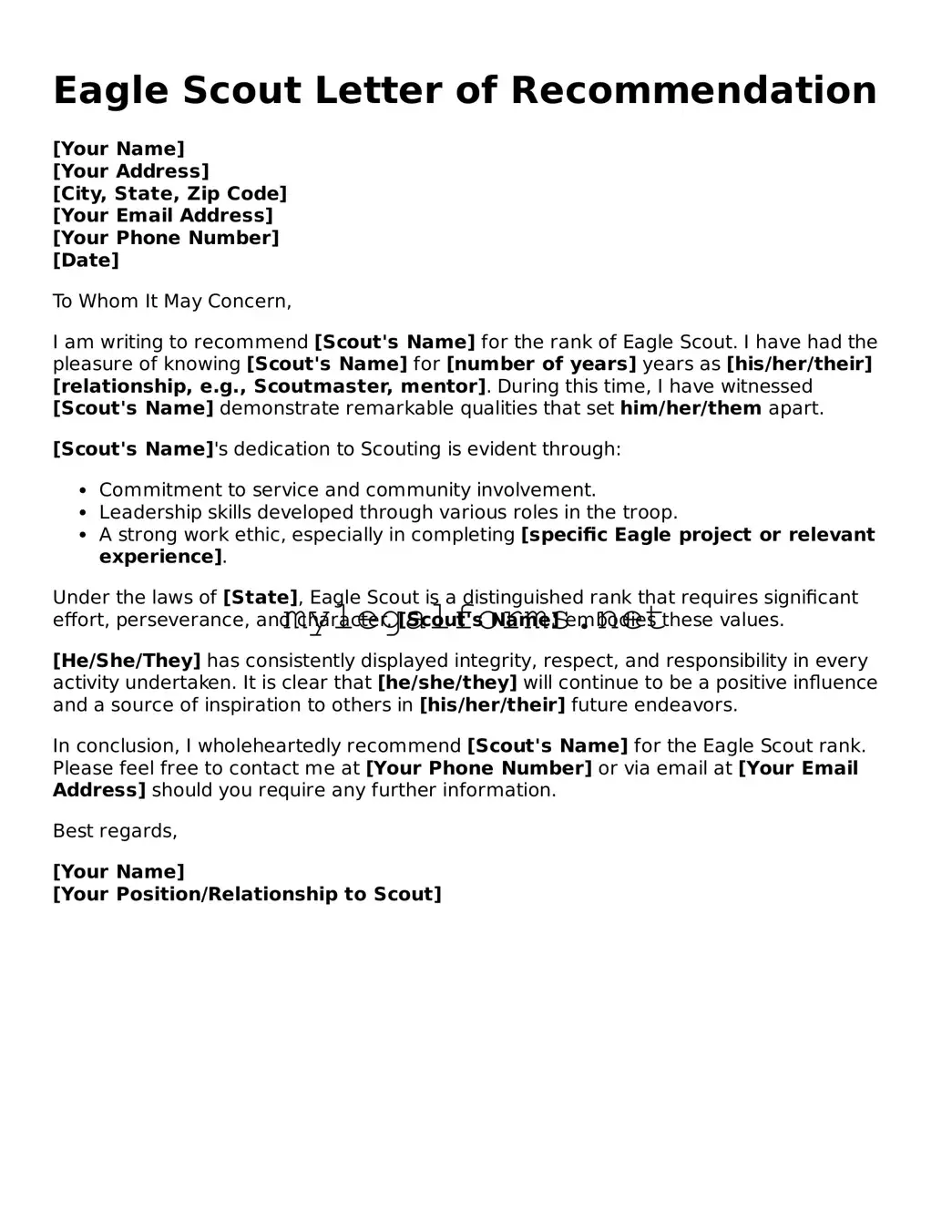Attorney-Approved Eagle Scout Letter of Recommendation Form
The Eagle Scout Letter of Recommendation form is a crucial document in the journey to achieving the prestigious rank of Eagle Scout. It serves as a formal request for references to provide insights into the candidate's character, leadership abilities, and community involvement. Completing this form accurately is essential for candidates seeking to highlight their qualifications and dedication to Scouting values.
Launch Eagle Scout Letter of Recommendation Editor

Attorney-Approved Eagle Scout Letter of Recommendation Form
Launch Eagle Scout Letter of Recommendation Editor

Launch Eagle Scout Letter of Recommendation Editor
or
⇓ PDF Form
Complete the form at your pace — fast
Finish your Eagle Scout Letter of Recommendation online and download the final version.